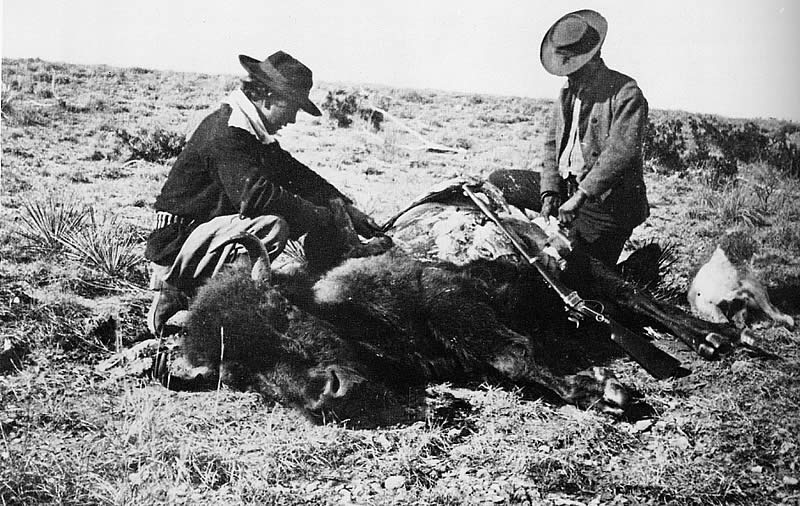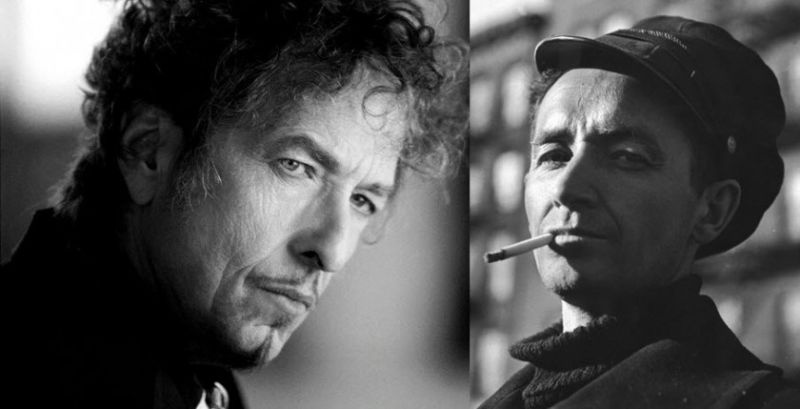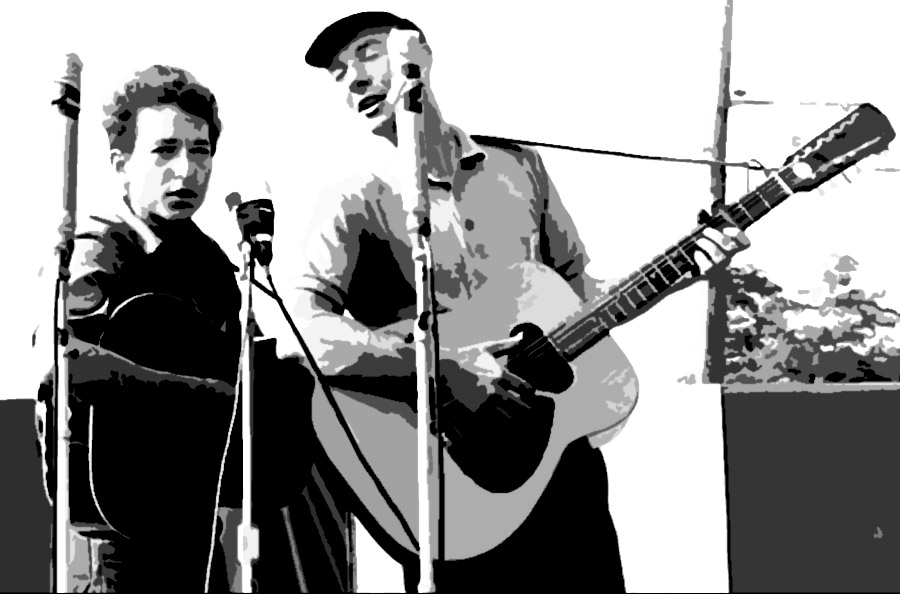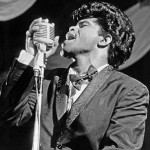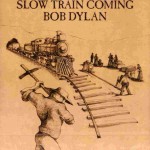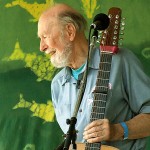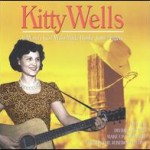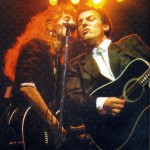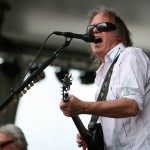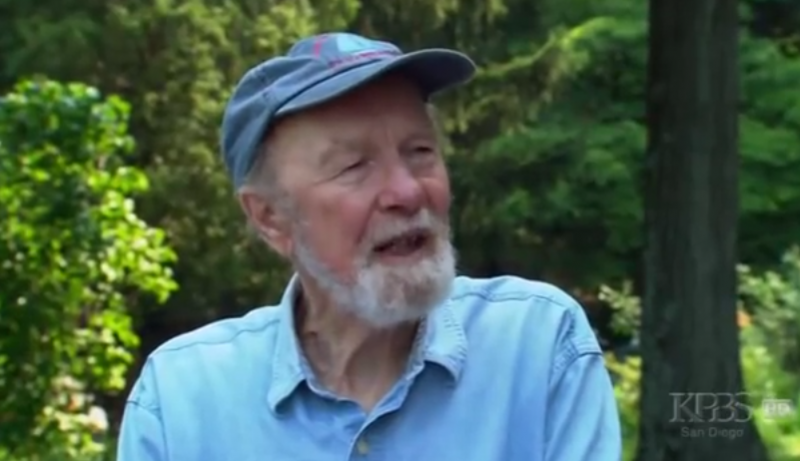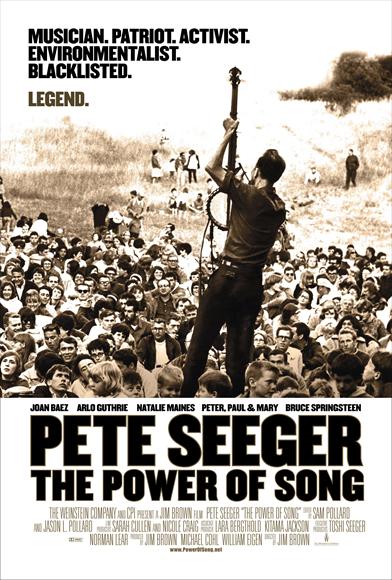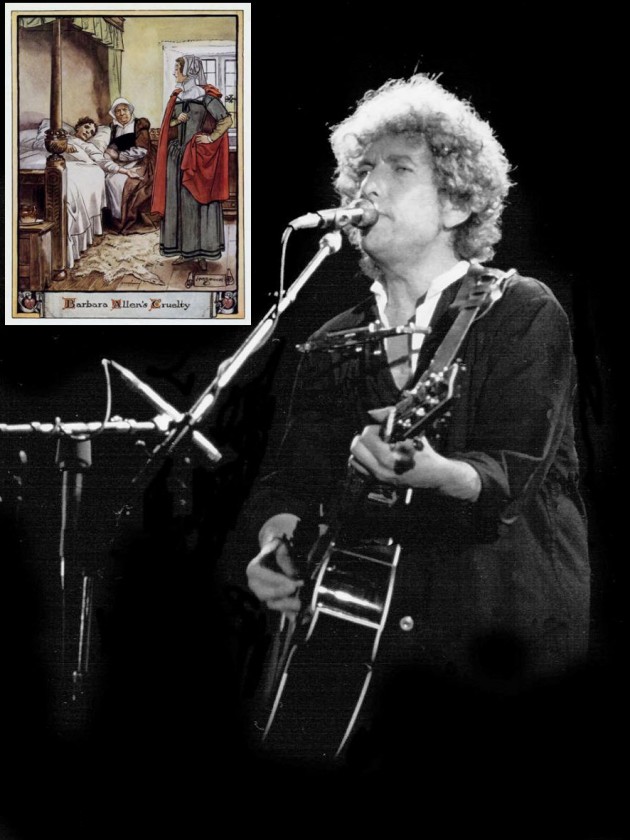
In Charlotte town, not far from here,
There was a fair maid dwellin.’
And her name was known both far and near,
And her name was Barb’ry Allen.
‘Twas in the merry month of May,
Green buds they were swellin’,
Poor William on his death-bed lay,
For the love of Barb’ry Allen.
–
…. And, you know, then the folk music, which I’d heard somewhat to a degree. I knew people that sung Barbara Allen and stuff like that. And I listened to all that music.
~Bob Dylan (to Nat Hentoff – Autumn 1965)
Wikipedia:
| Written by |
Traditional |
| Published |
17th century (earliest known) |
| Language |
English |
| Form |
Broadside ballad and folksong |
“Barbara Allen” (Child 84, Roud 54) is a traditional ballad originating in England and Scotland, which immigrants introduced to theUnited States, where it became a popular folk song. Roud and Bishop described it as, “…far and away the most widely collected song in the English language — equally popular in England, Scotland and Ireland, and with hundreds of versions collected over the years in North America.”
–
The story is a simple one. In “Scarlet Town,” a young man named Sweet William lies on his death bed and calls for Barbara Allen. He asks for her love; she coldly informs him that he is dying. There is some discussion over who slighted whom. She leaves and is smitten by remorse when she hears “the death bell knelling.” She asks her father to dig her grave. This done, she “will die for him tomorrow,” and buried next to Sweet William in the old churchyard, a rose that blossoms from his heart, and a briar that springs from hers, “grew and grew… till they twined a true love’s knot.”
~Lenny Kaye, liner notes for “O Love Is Teasin'” (Elektra 9 60402-1-U, 1985).
He sent his man down to town
To the place that she was dwellin’
Sayin’, “Master bids your company,
If your name is Barb’ry Allen.”
Oh slowly, slowly she got up
To the place where he was lyin’,
And when she pulled the curtain back,
Said, “Young man, I b’lieve you’re dying!”
Other notable versions
Joan Baez:
Pete Seeger:
Continue reading Bob Dylan: Barbara Allen (traditional) →
